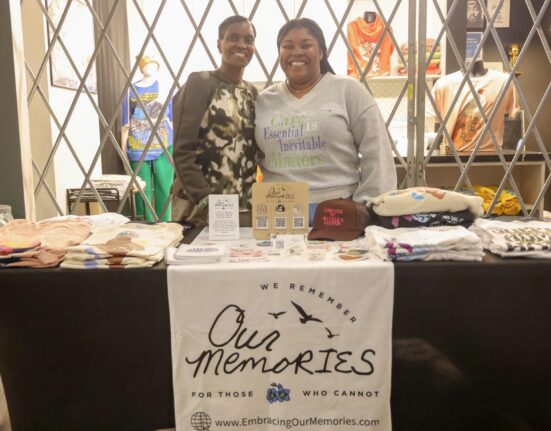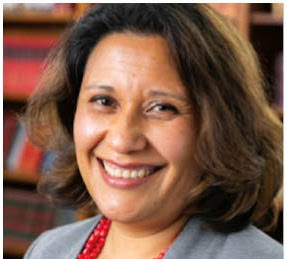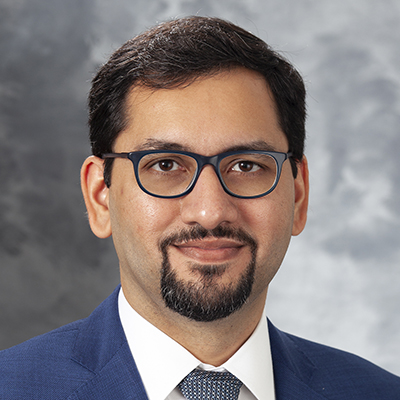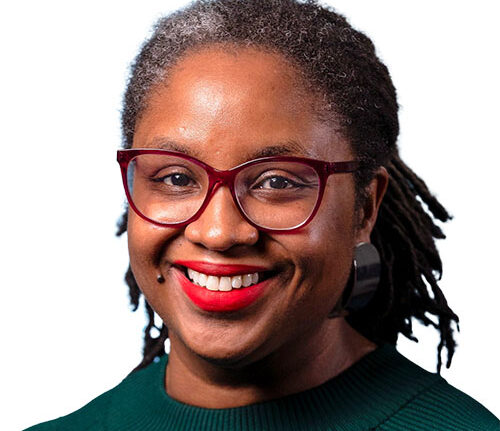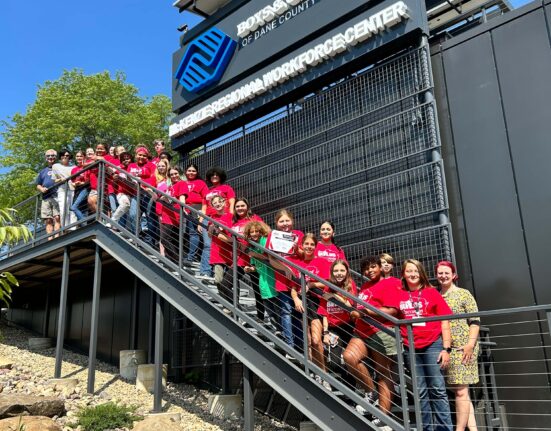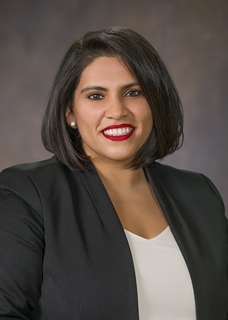
For Jilly Gokalgandhi, it’s not all that complicated: schools need more money.
“Our teachers and our parents are working as hard as they can,” said Gokalgandhi, Equity in Education Strategist at American Family Insurance Institute for Corporate and Social Impact, and a member of the Milwaukee Public Schools Board of Education. “When I go into classrooms in my district, you can just see the stresses. So at this point, to me, it’s not about what can our teachers and our parents do, it’s about what can the state legislature that’s sitting on a $7 billion surplus do?
“It’s not rocket science,” she continued. “We don’t need a room of pontificators to know what would make our public education system better. We know. Invest in it. Invest in Kids. Invest in educators. Invest in families. And we’re not doing that.”
Gokalgandhi grew up in Gurnee, Illinois, just across the state line from Kenosha. She came to Milwaukee in 2010 to study at Marquette University and never left.
“It became so apparent to me that there were enough opportunities and challenges here to stay and really make a difference,” she said. “I think Milwaukee is a midsize city where (if) you really put your head down and you collaborate with the right people, you can get things done.”
In the decade-plus since, she’s worked in a number of roles in or adjacent to education. Just out of college, she joined the Milwaukee Area Workforce Investment Board – now Employ Milwaukee – as a policy analyst. She went on to join United Way of Greater Milwaukee & Waukesha County as a Community School Coordinator, and then spent two years in community relations at Rockwell Automation, specifically working to support girls going into STEM fields.
Now, at the American Family Institute, she does grassroots organizing, coalition building and policy advocacy to improve education, focused on Milwaukee, Madison, Chicago, Phoenix, and Atlanta.
And when a seat on the school board opened up in 2021, she decided to put all that policy work into direct practice. In the two years since, she’s learned a lot, she said.
“I now realize it’s much, much harder (than it seems),” she said. “Your hands are more tied than you think they are. And to move a system with 60,000 children who have 60,000 different needs and different backgrounds and different points of view, that’s not easy work. That moves slowly.”
There’s one very easy way to start, though: invest more.
“At the end of the day, my thesis is we need more money to serve our students in this economy, in this environment, period,” she said. “That’s a no brainer.”
Of course, there’s more to it than that.
“I do think that we need to think strategically. I don’t think you could just say, here’s a pot of money, now we’re just gonna keep doing what we’re doing,” she said. “Can we update our curriculum and think about really new enticing ways to reimagine what it looks like to teach a more diverse society?”
Asked how schools can prepare students to enter the workforce, Gokalfandhi didn’t mention preparing high school or middle school students for college or careers; she’s thinking much younger. That preparation has to start with “supporting our earliest learners,” she said.
“When you support your earliest learners, you’re supporting not only a future workforce, but then the caregivers and the parents and guardians that come with that early workforce.
“We are in a childcare crisis in this state,” she continued. “Fixing our early childcare system is going to be a great place for us to at least knock down one domino that leads to a proliferation of change. From the intersection of the business, community education, and community investment, I would say that from my point of view, if we could commit to creating a healthy, thriving early childcare system, I think we could see some needle movement.”
She noted research showing the importance of those early learning years.
“We know birth to three outcomes really determine the trajectory of a child’s life. We’re talking about reading, math, all of that,” she said. “Why don’t we just start there, instead of trying to play catch up? Instead of trying to say, well, third grade reading is a problem. What happened in the first three years?”
Gokalganhdi, one of Madison365’s Most Influential Asian American Leaders for 2022, has two years left on her school board term and hasn’t formally announced whether she’ll seek another. Whether or not she does, she hopes to build on the foundation she’s laid over the past 10 years or so.
“I do want to continue to work in a space where I am listening and learning from other people, and working towards dismantling systems of oppression,” she said. “Uplifting myself and others, and just imagining a society in which we can flourish. That’s really where I see myself.”

